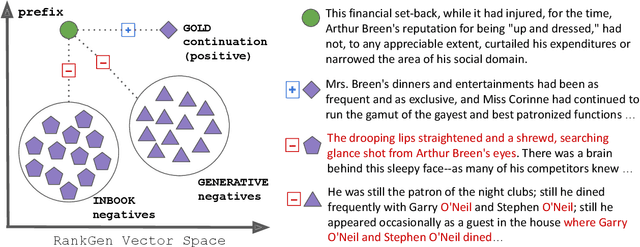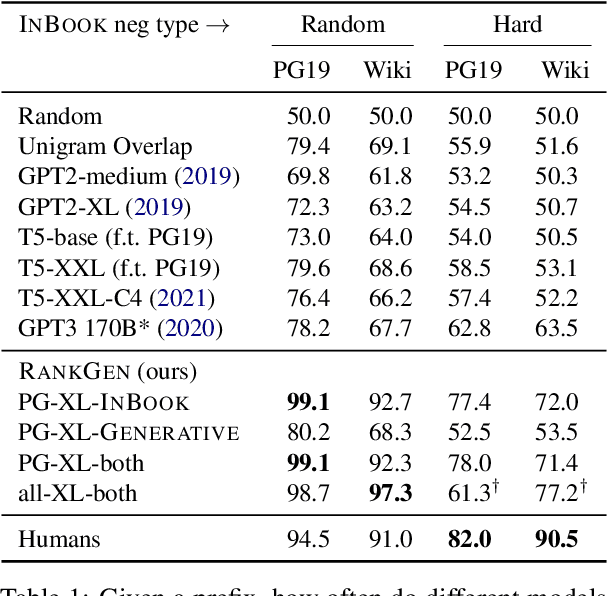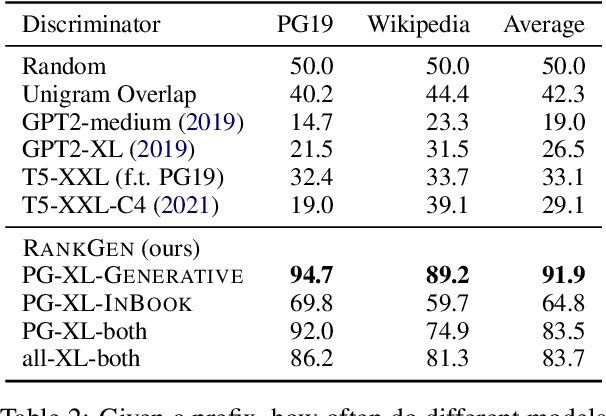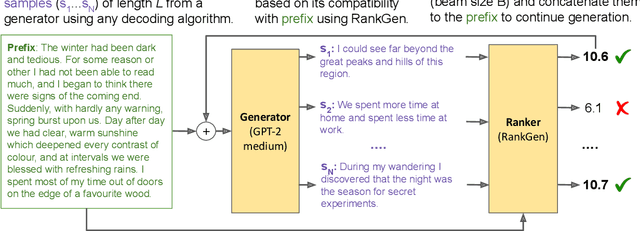RankGen: Improving Text Generation with Large Ranking Models
Paper and Code
May 19, 2022



Given an input sequence (or prefix), modern language models often assign high probabilities to output sequences that are repetitive, incoherent, or irrelevant to the prefix; as such, model-generated text also contains such artifacts. To address these issues, we present RankGen, an encoder model (1.2B parameters) that scores model generations given a prefix. RankGen can be flexibly incorporated as a scoring function in beam search and used to decode from any pretrained language model. We train RankGen using large-scale contrastive learning to map a prefix close to the ground-truth sequence that follows it and far away from two types of negatives: (1) random sequences from the same document as the prefix, and, which discourage topically-similar but irrelevant generations; (2) sequences generated from a large language model conditioned on the prefix, which discourage repetition and hallucination. Experiments across four different language models (345M-11B parameters) and two domains show that RankGen significantly outperforms decoding algorithms like nucleus, top-k, and typical sampling on both automatic metrics (85.0 vs 77.3 MAUVE) as well as human evaluations with English writers (74.5% human preference over nucleus sampling). Analysis reveals that RankGen outputs are more relevant to the prefix and improve continuity and coherence compared to baselines. We open source our model checkpoints, code, and human preferences with detailed explanations for future research.
 Add to Chrome
Add to Chrome Add to Firefox
Add to Firefox Add to Edge
Add to Edge